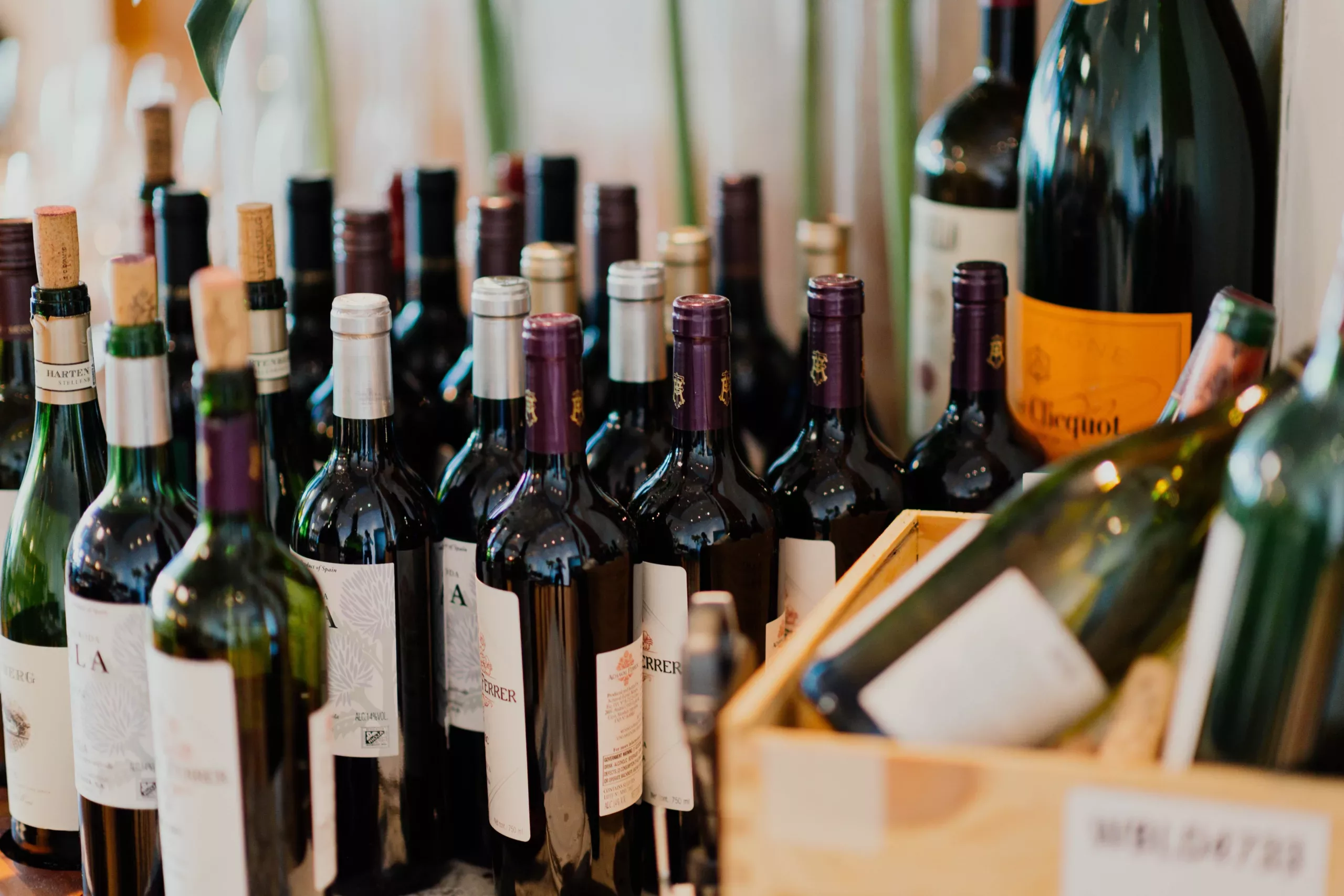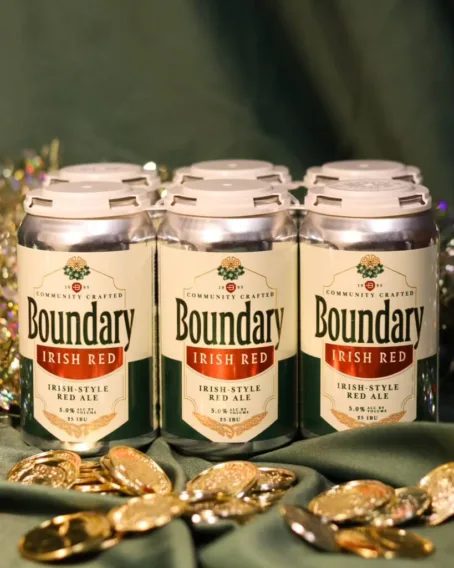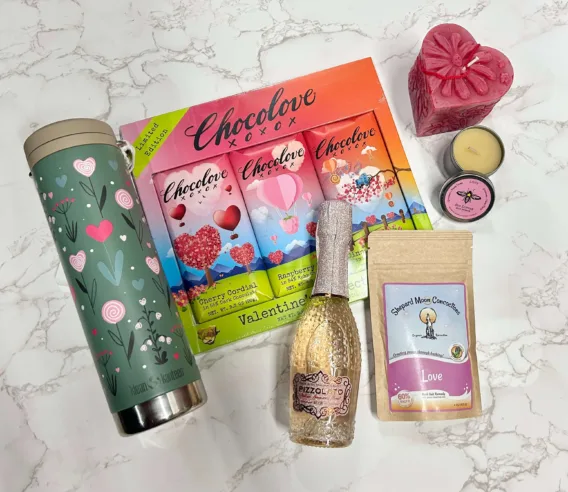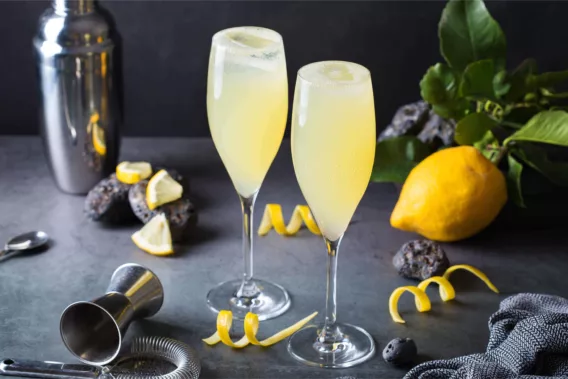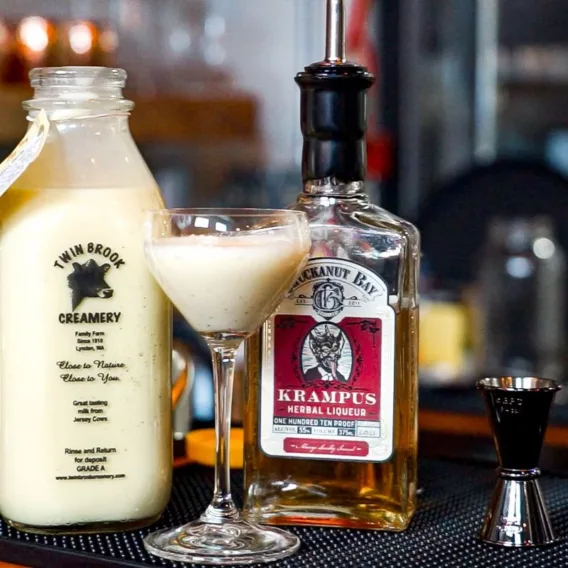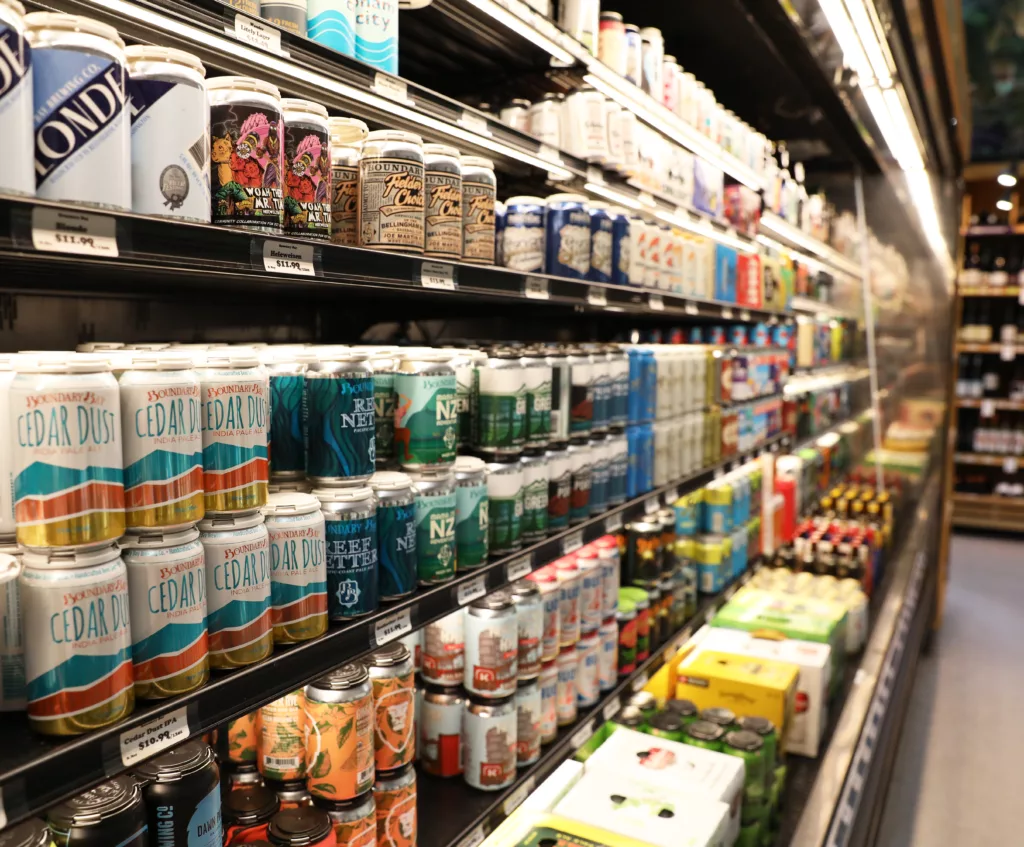
Expansive Selections
At the Community Food Co-op, we take pride in our role as specialists in our craft—our wine, beer, and spirits departments feature speciality selections that emphasize local producers, sustainable practices, and competitive pricing.
Explore our expansive selections in the wine, beer, and spirits departments, carefully curated to showcase the best of Bellingham. From specialty wines to local craft beers that Bellingham is known for, we cater to diverse tastes, offering options such as organic, gluten-free, and popular imports. Hard ciders, spirits, and more await you on our shelves.
The relationships we have with our local producers help us maintain one of the largest specialty wine, beer, and spirits collections in Whatcom County. Hosting an event? Ask our knowledgeable beer and wine buyers for personalized recommendations.
